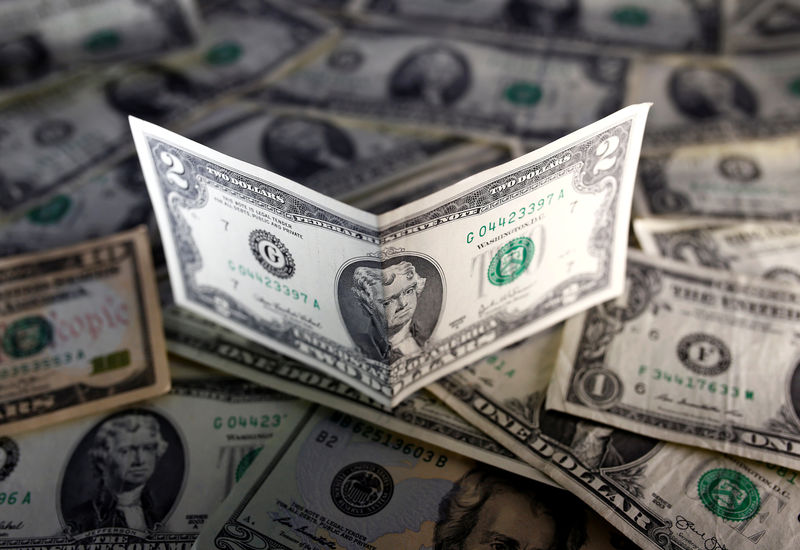By Gina Lee
Investing.com – The dollar was down on Wednesday morning in Asia, but was close to the year's peaks on the euro and yen. Investors are now focused on whether the U.S. Federal Reserve will begin asset tapering faster than its European and Japanese counterparts.
The U.S. Dollar Index that tracks the greenback against a basket of other currencies inched down 0.01% to 94.070 by 12:30 AM ET (4:30 AM GMT).
The USD/JPY pair edged down 0.12% to 113.81.
The AUD/USD pair inched up 0.06% to 0.7432 and the NZD/USD pair edged up 0.14% to 0.7119.
The USD/CNY pair inched down 0.01% to 6.3989. Data released earlier in the day showed that China’s Caixin services purchasing managers index, released earlier in the day, was 53.8 for October, slightly higher than the 53.4 recorded during the previous month. The GBP/USD pair edged up 0.11% to 1.3630.
The Fed will hand down its policy decision later in the day and is widely expected to begin asset tapering. However, a bigger focus is when the central bank will hike interest rates.
"Fed policy is under challenge in ways that cannot be remembered since the early Volcker years. Inflation is taking off with an economy that has been pricing itself off zero nominal rates and dramatic negative real rates for the last 18 months," Deutsche Bank (DE:DBKGn) strategist Alan Ruskin told Reuters.
Although expectations of even faster hiking elsewhere in the world are rising, risks could lie ahead if investors start to think that more than a few interest rate hikes will be needed to tame fast-rising prices.
"If the expected resilience of the real economy to rate hikes is correct, and inflation is similarly stubborn, the market expectations on the terminal funds rate at near 1.75% by the end of 2026 looks way too low," said Ruskin.
The Bank of England will hand down its decision on Thursday, with swaps pricing indicating a modest interest rate hike.
"I lean towards a 15bps hike at this meeting with a 5-4 vote in favor," Pepperstone strategist Luke Suddards told Reuters.
However, a falling currency could lead to disappointment or a fairly stern pushback against market inflation expectations at least. "Because this is basically baked into the price, I would say the risk is for the pound to weaken if BOE decides rather to hold and we see some dovish repricing in money markets,” said Suddards.
